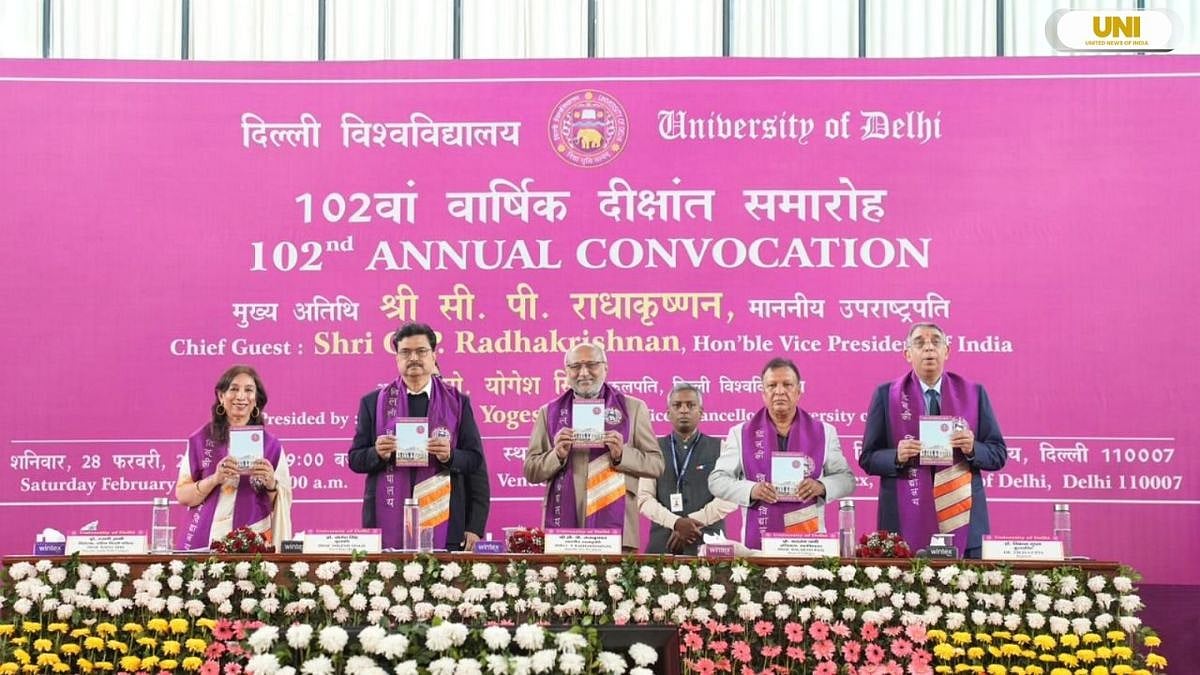The JEE Main Session 2 exam is scheduled to begin from Apr 4 with Paper 1 (BTech). The paper will be conducted in two shifts, shift one from 9am to 3pm and second shift from 3pm to 6pm. The exams will end on Apr 12 with Paper 2A and B, that is BArch and Planning.
The JEE Main exam is one of the most competitive exams in the country. The exam is an entrance exam for admissions into various engineering, planning as well as architecture colleges in India, especially the various branches of the Indian Institute of Technology (IIT). Thousands of candidates write the JEE Main exam every year, of which only a few candidates secure admission into their dream colleges.
The Free Press Journal (FPJ) reached out to various professors and JEE Main coaches to understand what factors help students excel in the exams.
The first and foremost tip for the students is proper checking of the question paper, according to AN Agarwal, an ex-IIT Bombay student, ex- DRDO scientist and JEE Mains teacher at Agarwal Coaching Institute.
“It is important to start with questions that you are most confident about so that no time is wasted,” Agarwal said, adding that students should go with a free mind to the exam centre.
According to Sankalp Jauhari, founder of JEESankalp, students should not put limits on their capabilities. He said, “Most of the time, they make up their mind to attempt only 50 questions in fear of negative marking, however, the goal should not be this. Students should not regret after the exams are over about any question that they could have otherwise solved but did not attempt in the exams.”
Jauhari further added that the overall questions should be based on the shifts, in easy shifts students can attempt more questions.
It is also important for students to not overburden themselves with mock tests on the day before an exam. “Revise in such a way that your strong points are highlighted in the answer sheet,” Jauhari said.
According to Vinay Kumar, CEO and MD at Rao IIT, students should treat these practice sessions as actual exams. He said, “Students should find a quiet space, set a timer, and work through the paper without distractions. Afterward, thoroughly review answers and understand the rationale behind each question, especially those they got wrong. This exercise will help identify gaps in knowledge and improve time management skills, both of which are critical for success in the actual exam.”
According to Kumar, at this stage, it is also essential to focus on areas that are frequently tested and carry a significant weight in the exam. Reviewing these subjects can provide a substantial boost to the candidate’s score. Kumar further added, “Students should create a concise revision list based on the syllabus and past papers, identifying topics that they find challenging or that have historically been important in the exam. This targeted approach ensures that students spend remaining preparation time on the areas that will yield the highest return.”
Echoing similar sentiment, Hrishikesh Kambale, an ex-IIT Madras student said, “It is important to focus on revising key formulas, concepts and problem-solving techniques. Students should not attempt to learn new topics at the last minute.”
Kambale further added that students who had a bad session one should try to forget about it and try to approach session two with a fresh mindset.
It is also important to avoid starting new topics in the last few days before the exam, as this can increase stress levels. According to Kumar, “Students should instead focus on consolidating what they already know and build confidence in their abilities. Remember, a calm and focused mind is a best asset when tackling a challenging exam like the JEE.”
While giving the exam as well, students should remain calm and not panic. Ayesha Sippy, the vice-principal of High School Segment at Narayana E-Techno School said, “Students should practise solving questions within the stipulated time limit. Divide time wisely among different sections and questions. Don’t get stuck on difficult questions; move on to the next one and come back later if time permits.”
Sippy further advised students to maintain a positive mindset and avoid last-minute stress. She further added, “Remember that you have prepared to the best of your abilities, and stay confident in your knowledge and skills. Take short breaks to relax and rejuvenate your mind.”
Sharing his experience, Rinkesh Kumar Meena, an IIT Kharagpur student said, “The first thing for cracking this exam is to remember that all that matters is the three hours of the exam. Therefore, make sure that your mental energy is at peak during this time. To achieve this, it's important to rest before an exam, preferably at least for a day.”





